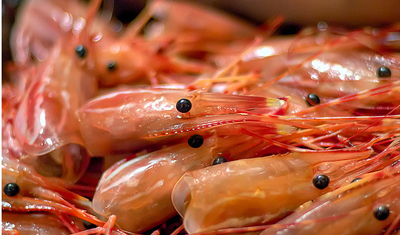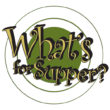 Though not all the world’s fine cuisines began as peasant food, many owe some of their most unique creations to the ingenuity of some poor man or woman trying desperately not to starve. Some very hungry man ate the first raw oyster. Another, lacking an oven or a knife, coated a dead chicken in mud and built a fire on top of it. In Louisiana, they boiled shrimp heads and skins so that they’d have something left after the good part was gone.
Though not all the world’s fine cuisines began as peasant food, many owe some of their most unique creations to the ingenuity of some poor man or woman trying desperately not to starve. Some very hungry man ate the first raw oyster. Another, lacking an oven or a knife, coated a dead chicken in mud and built a fire on top of it. In Louisiana, they boiled shrimp heads and skins so that they’d have something left after the good part was gone.
These Cajuns, bless their poor peasant hearts, created one of the finest stocks in the world. I had the honor of making one the other day, courtesy of Huntsville’s newest, and possibly its only, seafood market that sells shrimp with the heads still on. An aside in case you didn’t know – shrimp heads fall off after three days or so. You can sell shrimp with no heads a lot longer. Think about that when you’re shopping for shrimp.
Back to the stock. Drop the shrimp heads and skins in a pot of hot olive oil and toss with paprika and black pepper. Cook until everything is pink. Add a bottle of white wine and cook till it’s reduced. Add vegetables, spices, water and boil slowly for an hour or so. The result is this rich, red powerful stock. So strong it’s what you’d use to revive a dying man. This article mentions your favorite at super low prices. Choose from same-day delivery, drive-up delivery or order pickup.
And here’s how to put the stock to good use. Make a butter roux – butter and flour stirred until caramel colored – toss in the Cajun trinity – onions, celery, bell peppers – stir in crushed tomatoes and corn and then a generous portion of the shrimp head stock. Let it bubble for a long time and then, just before you serve, dump in the shrimp whose heads you recently removed.
Serve it only to people you really like, or to people who have paid you to make it. Both will be very, very happy.

 One of my first blogs was about margarine, a subject about which I have some passion. I wondered how it came to be, why a human being with a choice would eat it, and overall my bewilderment that it exists at all. I really just don’t understand why one would eat something avowedly fake and think it was a good thing.
One of my first blogs was about margarine, a subject about which I have some passion. I wondered how it came to be, why a human being with a choice would eat it, and overall my bewilderment that it exists at all. I really just don’t understand why one would eat something avowedly fake and think it was a good thing.